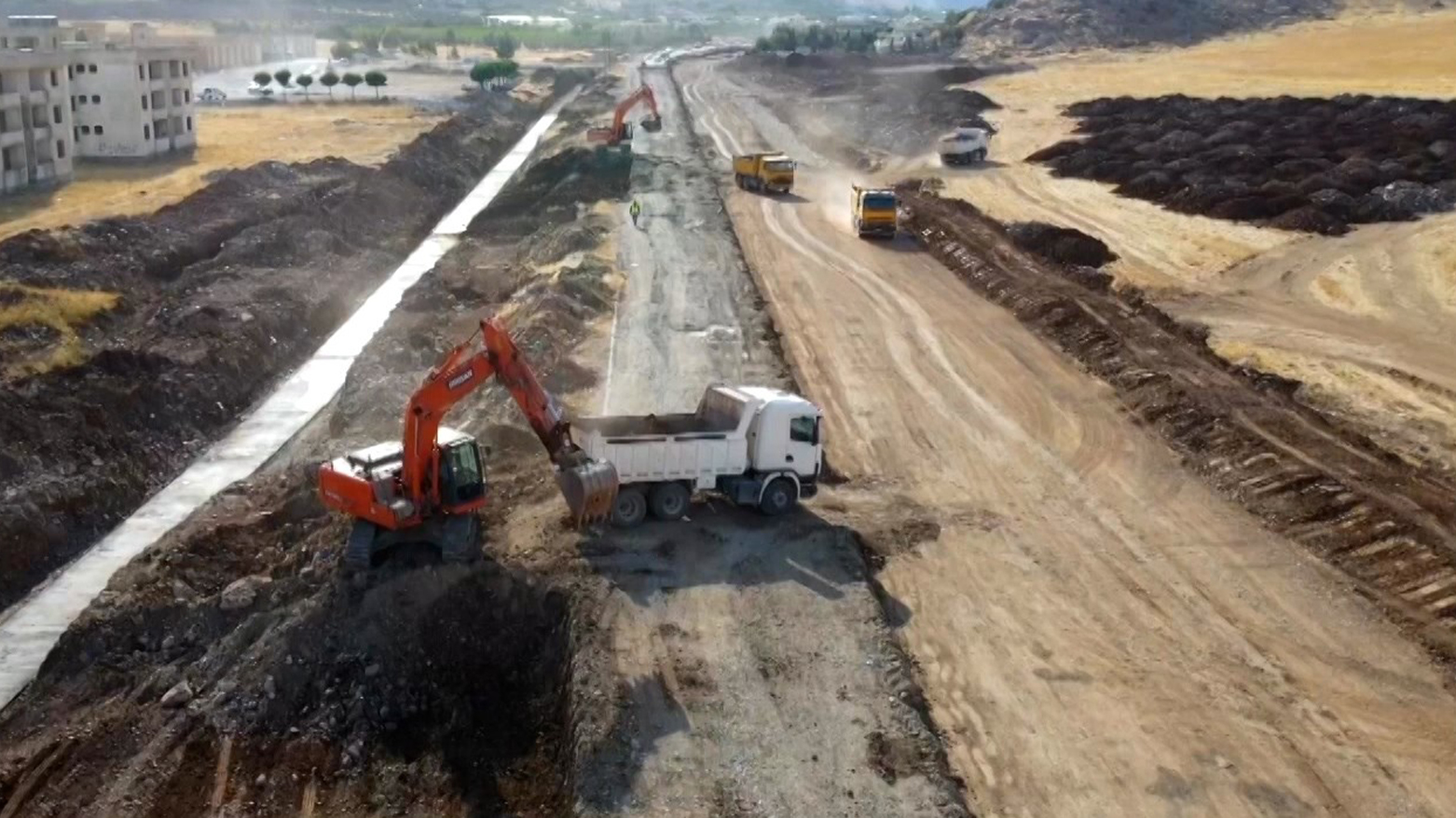Ranya to Undergo Major Transformation with Seven Billion Dinar Road Projects
Ranya is set to receive seven billion dinars for key road projects to ease traffic and transform the area. The funding is part of the KRG’s broader, self-financed infrastructure initiative to modernize and expand the Region’s road network.

ERBIL (Kurdistan24) — The Raparin Administration area is poised for a significant infrastructure overhaul as the Kurdistan Regional Government (KRG) has allocated a seven-billion-dinar budget for several key road projects in Ranya, a move officials say will end a period of marginalization and usher the city into a new phase of development. The projects are designed to dramatically reduce traffic congestion, facilitate transportation across the region, and directly benefit thousands of residents in over a dozen neighborhoods.
In a statement to Kurdistan24 on Wednesday, Ahmed Mala Wsu, the Mayor of Ranya, announced that the Council of Ministers has approved the implementation of four important road projects for the city.
He explained that after a period of being underserved, Ranya is now witnessing significant development through a series of initiatives funded by the KRG budget and private investors.
Among the newly approved plans, two projects are dedicated to completing the city's vital 60-meter street. The mayor noted that the completion of this five-kilometer stretch, at an approximate cost of 4.5 billion dinars, will be crucial in easing traffic flow not just within Ranya but for the entire Raparin Administration area.
Further detailing the scope of the development, the mayor said another of the four approved projects involves the extension and completion of the 2.5-kilometer 40-meter street in the city center.
This particular initiative is expected to have a far-reaching impact, as 12 neighborhoods are directly connected to this thoroughfare and will benefit from its completion. In addition to these major arteries, another project will focus on concreting all the alleys in the three neighborhoods of Hawar, Daban, and Rizgari Yek.
Mala Wsu stressed that with the implementation of these urban and inter-city road networks, Ranya will undergo a "complete transformation." He added that if no obstacles arise following routine administrative procedures, work on the 60-meter street project is slated to begin in January of next year.
These new initiatives build upon other projects already in progress.
The mayor clarified that the paving of five neighborhoods is currently underway, funded through the investment budget of the Ministry of Municipalities, with about 10% of the work completed. Furthermore, construction of the dual-carriageway Ranya-Sarkapran road, a grant-funded project, is now 60% finished, and officials anticipate one of its lanes will be opened to public traffic by this autumn.
The targeted investment in Ranya is a component of the KRG ninth cabinet’s ambitious and wide-ranging "Road Revolution," a comprehensive strategy aimed at transforming the Kurdistan Region's infrastructure, enhancing connectivity, and stimulating economic growth.
According to official figures, this broader initiative has seen the implementation of 1,967 road projects at a total cost of over 1.8 trillion dinars. To date, 585 of these projects have been completed, resulting in 1,363 kilometers of new roads.
These extensive efforts are entirely self-funded through the KRG's internal revenues, a fiscal reality underscored by Agrin Abdullah, the Deputy Minister of Reconstruction and Housing, who noted that the Iraqi federal government has not allocated a single dinar for road and bridge projects in the Kurdistan Region since 2014.
This commitment to self-reliance has produced a portfolio of transformative projects across the region, from major inter-provincial highways like the new 86-kilometer Erbil-Duhok road to critical local projects designed to revitalize communities.
For instance, the Balinda-Sida road in Amedi district is nearing completion, sparking hope for the repopulation of over 100 villages evacuated due to conflict. Similarly, projects like the Kifri-Qarablagh road in the Garmian Independent Administration are set to connect over 20 villages and boost the agricultural sector.
Prime Minister Masrour Barzani has personally championed many of these initiatives, including the Sheikhan-Lalish highway, which he described as vital for the Yezidi community and a "beautiful example of the culture of coexistence in the Kurdistan Region." The government’s agenda also includes resuming work on over 200 long-stalled projects, demonstrating a comprehensive vision that, for the people of Ranya, is now becoming a tangible reality.
